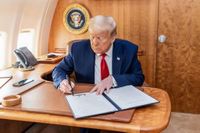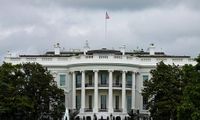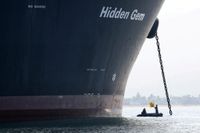In a bold move to secure the United States' position in the global minerals market, President Donald Trump is drafting an executive order that would allow the country to stockpile critical metals from the Pacific seabed. This initiative aims to counter China's overwhelming dominance in the supply of rare earth minerals and battery metals, which are essential for various high-tech applications, including defense and clean energy technologies.
According to a report by the Financial Times on April 12, 2025, the administration is invoking emergency powers under the Defense Production Act to facilitate this endeavor. By establishing a strategic reserve of critical minerals, the U.S. hopes to reduce its reliance on foreign imports, particularly from China, which currently supplies nearly 70% of the world's rare earth production and controls about 90% of global refining capacity.
The proposed executive order is part of a broader strategy to fast-track deep-sea mining applications under U.S. law. It would allow the government to tap into polymetallic nodules found on the ocean floor, which are rich in nickel, cobalt, copper, and manganese—key components for battery production—as well as traces of rare earth elements. These elements, comprising a group of 17 essential minerals, are crucial for the manufacturing of high-tech devices and renewable energy technologies.
Sources familiar with the plans indicate that the stockpile would serve as a buffer against potential supply disruptions in the event of escalating tensions with China. The urgency of this initiative has been heightened by recent statements from Beijing, which announced it would tighten controls on exports of seven types of rare earth elements, further complicating the U.S.'s access to these critical materials.
China's dominance in the rare earth market has been a growing concern for U.S. policymakers, especially in light of the ongoing geopolitical trade tensions. The U.S. Geological Survey estimates that China accounts for approximately 70% of the global production of rare earths, highlighting the strategic importance of diversifying supply sources.
"We need to create large quantities ready and available on U.S. territory to be used in the future," a source familiar with the executive order told the Financial Times. This statement underscores the administration's intent to ensure that the U.S. is prepared for any potential conflicts that could disrupt imports of essential metals.
In addition to the strategic reserve, the administration is also looking to enhance domestic mining capabilities. Earlier in March 2025, Trump signed an executive order activating the Defense Production Act, which aims to boost domestic mining and processing of critical minerals. This move is seen as a vital step in making the U.S. less reliant on China and ensuring that the country can secure the resources necessary for its technological and defense industries.
As the U.S. ramps up its efforts to establish a foothold in the deep-sea mining sector, it must also navigate the ecological risks associated with such activities. Environmental groups have raised concerns about the potential impact of deep-sea mining on marine ecosystems, warning that the extraction of minerals from the ocean floor could have devastating effects on biodiversity.
While the push for resource independence is critical, analysts caution about the uncertain commercial viability of deep-sea mineral development. The financial and environmental implications of such projects need to be carefully considered to avoid long-term damage to marine habitats.
Furthermore, the U.S. is not alone in its ambitions to exploit seabed resources. China has also expressed interest in deep-sea mining, positioning itself to lead what some analysts are calling the "race to the bottom" in the ocean. This competition could intensify as both nations seek to secure their interests in a resource-rich area that has largely remained untapped.
The proposed executive order and the broader strategy to enhance domestic production capabilities reflect a significant shift in U.S. policy towards critical minerals. By prioritizing resource independence, the Trump administration aims to fortify the nation's economic and national security interests against the backdrop of rising global tensions.
As the U.S. moves forward with its plans, the implications for both the domestic economy and international relations will be closely monitored. The balance between securing essential resources and protecting the environment will be a key factor in the success of this initiative.
In conclusion, as the Trump administration lays the groundwork for a strategic reserve of critical minerals, the focus remains on reducing dependence on China while addressing the ecological risks associated with deep-sea mining. The outcome of this initiative could reshape the landscape of global mineral supply chains and set the stage for future U.S.-China relations.







